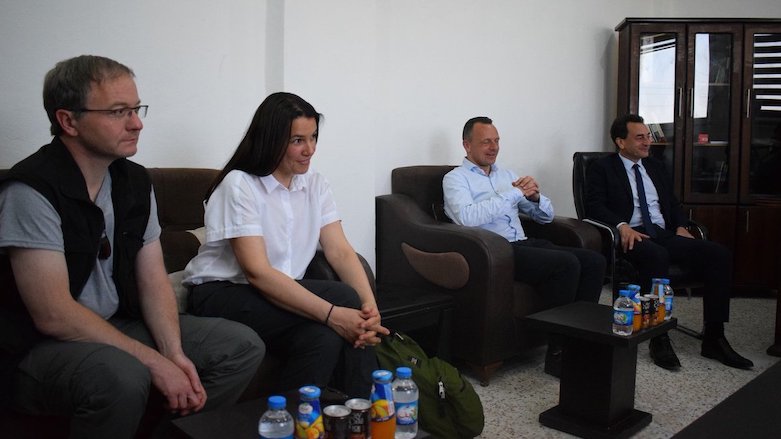Netherlands not obliged to repatriate Dutch woman from Syria, court rules
According to the Dutch court, the Netherlands cannot be forced to repatriate ISIS families in northeast Syria.

ERBIL (Kurdistan 24) – The Dutch court in the Hague on Tuesday ruled that the government is not obliged to repatriate a woman from Syria’s al-Hol camp to the Netherlands.
The 32-year-old woman is staying in the al-Hol refugee camp in northern Syria that hosts over 60,000 residents. She traveled to Syria to join the Islamic State group in 2014.
In January, United Nations officials expressed concern over the deteriorating security conditions inside al-Hol camp, and the court said that the conditions in al-Hol camp are appalling with little health care and violence.
“There is a shortage of food and [drinking] water and hygiene is poor. The woman also has serious mental and physical problems,” the court said.
However, although the court found the situation of the woman distressing, it ruled that the State is not obliged to proceed with her repatriation to the Netherlands.
In an earlier case, the Supreme Court in the Netherlands ruled that the government has a lot of flexibility to decide whether or not to proceed with the repatriation of Dutch women and children from Northern Syria.
“The court can only assess whether the State has reasonably been able to reach its decision,” the court said.
The court said the situation in Syria remains dangerous since there are frictions between Kurdish groups, government forces and other armed groups. The court said these political frictions also previously led to the Turkish invasion in October 2019.
“The situation can change from day to day. For the repatriation of the woman, the State must deploy people on the spot. The State may choose not to do so if those people are at risk for their safety,” the court ruled in favor of the Dutch state.
The court also added that northern Syria is in the hands of non-state actors to which the Dutch state has no ties.
According to the court, the State cannot currently be forced to make relations with the Syrian government or the local Kurdish-led authorities for the repatriation of the woman.
The case could hamper the repatriation of other Dutch Islamic State suspects stuck in northern Syria.
There are dozens of Dutch suspected Islamic State fighters and their families being held by the Kurdish-led forces in Syria.
According to the latest data from the Dutch intelligence services there are at least 110 adults who joined Islamic State in Syria, including in camps and prisons in northeast Syria.
Nevertheless, the Dutch authorities earlier had contact with the local Kurdish-led Autonomous Administration of North and East Syria (AANES).
The Dutch Minister of Justice and Security confirmed in February 2019 that they will look for options to coordinate with the Kurdish-led authority for the repatriation of Dutch Islamic State women.
In June 2019, a Dutch-French delegation picked up ISIS orphans from Syria, including two Dutch children.
Read More: Dutch-French delegation picks up ISIS orphans from northeast Syria
However, the Dutch earlier also refused a US offer to help repatriate Islamic State women and their children from Syria.
Both the SDF and the civilian Autonomous Administration in northeast Syria have earlier called on foreign countries to repatriate their citizens.
US Acting Special Envoy for the Global Coalition to Defeat ISIS John Godfrey told reporters on Monday that the international community should “consider the repatriation of their own citizens in order to help relieve the burden on our local partners.”
According to Human Rights Watch, so far 25 countries are known to have repatriated any nationals from northeast Syria, mostly orphan children.
On March 22, the European Court of Human Rights said its Grand Chamber will examine two complaints against France for not repatriating two French women held in a camp in Syria with their children.
Their parents were unsuccessful just as Dutch families in their applications in French courts to return their daughters and grandchildren.
The case could have future ramifications for other European Islamic State families stuck in Syria.
Editing by Joanne Stocker-Kelly